Related Research Articles
Roe v. Wade, 410 U.S. 113 (1973), was a landmark decision of the U.S. Supreme Court in which the Court ruled that the Constitution of the United States protected the right to have an abortion prior to the point of fetal viability. The decision struck down many State abortion laws, and it sparked an ongoing abortion debate in the United States about whether, or to what extent, abortion should be legal, who should decide the legality of abortion, and what the role of moral and religious views in the political sphere should be. The decision also shaped debate concerning which methods the Supreme Court should use in constitutional adjudication.
Planned Parenthood v. Casey, 505 U.S. 833 (1992), was a landmark decision of the Supreme Court of the United States in which the Court upheld the right to have an abortion as established by the "essential holding" of Roe v. Wade (1973) and issued as its "key judgment" the restoration of the undue burden standard when evaluating state-imposed restrictions on that right. Both the essential holding of Roe and the key judgment of Casey were overturned by the Supreme Court in 2022, with its landmark decision in Dobbs v. Jackson Women's Health Organization.
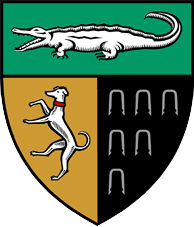
Yale Law School (YLS) is the law school of Yale University, a private research university in New Haven, Connecticut. It was established in 1824. The 2020–21 acceptance rate was 4%, the lowest of any law school in the United States. Its yield rate is often the highest of any law school in the United States.
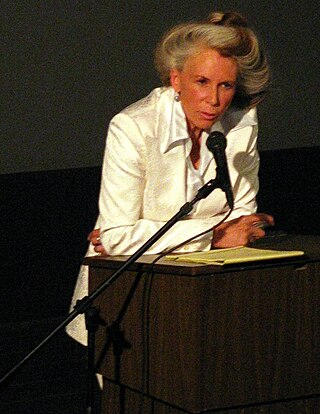
Catharine Alice MacKinnon is an American feminist legal scholar, activist, and author. She is the Elizabeth A. Long Professor of Law at the University of Michigan Law School, where she has been tenured since 1990, and the James Barr Ames Visiting Professor of Law at Harvard Law School. From 2008 to 2012, she was the special gender adviser to the Prosecutor of the International Criminal Court.
The Equal Protection Clause is part of the first section of the Fourteenth Amendment to the United States Constitution. The clause, which took effect in 1868, provides "nor shall any State ... deny to any person within its jurisdiction the equal protection of the laws." It mandates that individuals in similar situations be treated equally by the law.

John Hart Ely was an American legal scholar. He was a professor of law at Yale Law School from 1968 to 1973, Harvard Law School from 1973 to 1982, Stanford Law School from 1982 to 1996, and at the University of Miami Law School from 1996 until his death. From 1982 until 1987, he was the 9th dean of Stanford Law School.
The Yale Law Journal (YLJ) is a student-run law review affiliated with the Yale Law School. Published continuously since 1891, it is the most widely known of the eight law reviews published by students at Yale Law School. The journal is one of the most cited legal publications in the United States and usually generates the highest number of citations per published article.
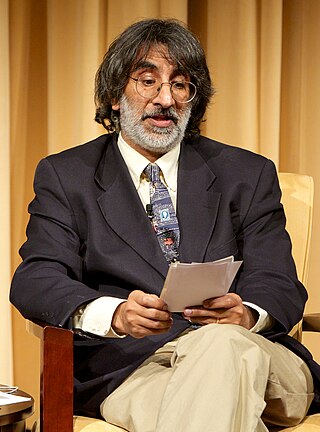
Akhil Reed Amar is an American legal scholar known for his expertise in U.S. constitutional law. He is the Sterling Professor of Law and Political Science at Yale University, where he is a leading scholar of originalism, the U.S. Bill of Rights, and criminal procedure.
Anti-abortion feminism is the opposition to abortion by some feminists. Anti-abortion feminists may believe that the principles behind women's rights also call them to oppose abortion on right to life grounds and that abortion hurts women more than it benefits them.

Michael William McConnell is an American jurist who served as a United States circuit judge of the United States Court of Appeals for the Tenth Circuit from 2002 to 2009. Since 2009, McConnell has been a professor and Director of the Stanford Constitutional Law Center at Stanford Law School. He is also a senior fellow at Stanford University's Hoover Institution, and Senior Of Counsel to the Litigation Practice Group at Wilson Sonsini Goodrich & Rosati. In May 2020, Facebook appointed him to its content oversight board. In 2020, McConnell published The President Who Would Not Be King: Executive Power under the Constitution under Princeton University Press.

The Living Constitution, or judicial pragmatism, is the viewpoint that the U.S. constitution holds a dynamic meaning even if the document is not formally amended. The Constitution is said to develop alongside society's needs and provide a more malleable tool for governments. The idea is associated with views that contemporary society should be considered in the constitutional interpretation of phrases. The Constitution is referred to as the living law of the land as it is transformed according to necessities of the time and the situation. Some supporters of the living method of interpretation, such as professors Michael Kammen and Bruce Ackerman, refer to themselves as organicists.

Thomas Eugene Baker is a constitutional law scholar, Professor of Law, and founding member of the Florida International University College of Law. With four decades of teaching experience, Baker has authored eighteen books, including two leading casebooks, has published more than 200 scholarly articles in leading law journals, and has received numerous teaching awards.
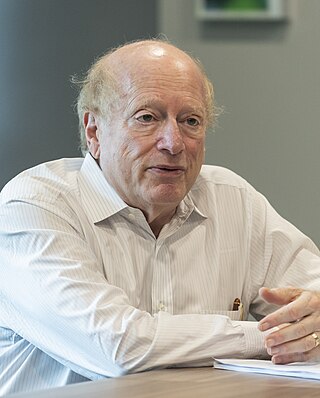
Mark Victor Tushnet is an American legal scholar. He specializes in constitutional law and theory, including comparative constitutional law, and is currently the William Nelson Cromwell Professor of Law at Harvard Law School. Tushnet is identified with the critical legal studies movement.

Jack M. Balkin is an American legal scholar. He is the Knight Professor of Constitutional Law and the First Amendment at Yale Law School. Balkin is the founder and director of the Yale Information Society Project (ISP), a research center whose mission is "to study the implications of the Internet, telecommunications, and the new information technologies for law and society." He also directs the Knight Law and Media Program and the Abrams Institute for Free Expression at Yale Law School.
Constitutional theory is an area of constitutional law that focuses on the underpinnings of constitutional government. It overlaps with legal theory, constitutionalism, philosophy of law and democratic theory. It is not limited by country or jurisdiction.
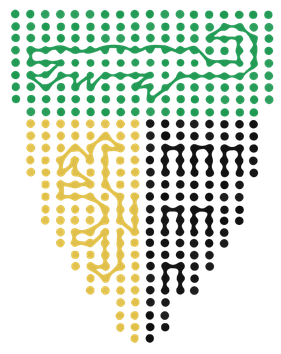
The Information Society Project (ISP) at Yale Law School is an intellectual center studying the implications of the Internet and new information technologies for law and society. The ISP was founded in 1997 by Jack Balkin, Knight Professor of Constitutional Law and the First Amendment at Yale Law School. Jack Balkin is the director of the ISP.

Sanford Victor Levinson is an American legal scholar known for his writings on constitutional law. A professor at the University of Texas Law School, Levinson is notable for his criticism of the United States Constitution as well as excessive presidential power and has been widely quoted on such topics as the Second Amendment, gay marriage, nominations to the Supreme Court, and other legal issues. He has called for a Second Constitutional Convention of the United States.
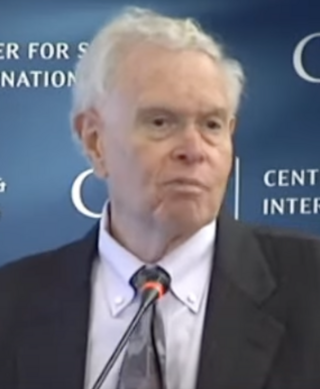
Paul Brest is an American legal scholar who is a former president of the William and Flora Hewlett Foundation and a former dean of Stanford Law School. He is credited with coining the name originalism to describe a particular approach to interpreting the United States Constitution.
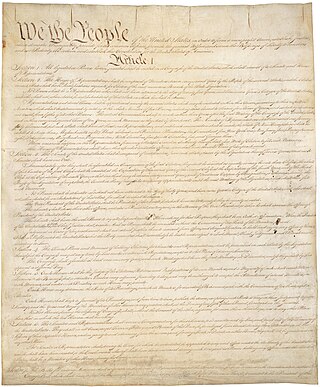
Although the United States Constitution has never contained the words "slave" or "slavery" within its text, it dealt directly with American slavery in at least five of its provisions and indirectly protected the institution elsewhere in the document.
The Association for the Study of Abortion (ASA) was an American organization founded around 1965 dedicated to the study of abortion and advocacy for the liberalization of abortion law. Its founding members included the obstetrician-gynecologists Alan F. Guttmacher and Robert E. Hall, who served as the organization's initial chairman.
References
- ↑ "Alphabetical Index of Active Members" (PDF). American Academy of Arts and Sciences. Retrieved August 16, 2016.
- ↑ "Leadership". American Constitution Society for Law and Policy. Retrieved 16 August 2016.
- ↑ "Yale Law School". American Constitution Society of Law and Policy. Retrieved 16 August 2016.
- ↑ "Election of New Members at the 2018 Spring Meeting".